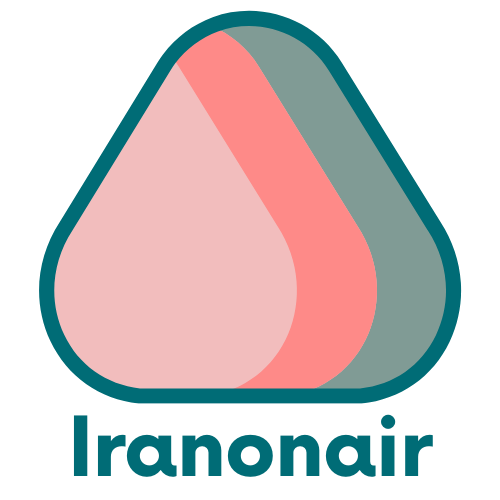Spain stands at the forefront of artificial intelligence governance as new regulations reshape how innovative companies develop and deploy AI technologies. The regulatory landscape is evolving rapidly, balancing innovation with necessary safeguards while Spanish businesses navigate complex compliance requirements in this transformative period.
Current Regulatory Landscape for AI in Spain
Spain is actively constructing a comprehensive regulatory framework for artificial intelligence that aims to foster innovation while ensuring ethical AI use. This evolving system includes national initiatives alongside alignment with broader European directives, creating a multi-layered approach to AI governance.
Key provisions of Spain's AI framework
The Draft Spanish AI Law, approved by the Council of Ministers on March 11, 2025, forms the backbone of Spain's approach to AI regulation. This framework adopts a risk-based model similar to the EU AI Act, categorizing AI systems into four tiers: unacceptable, high, limited, and minimal risk. The Spanish AI State Agency (AESIA), operational since June 2024, serves as the market surveillance authority. Many businesses are exploring the Punto Log system to track compliance requirements across different risk categories. The regulatory sandbox established by Royal Decree 817/2023 represents another innovative aspect, allowing twelve selected AI projects to test their technologies in a controlled environment while receiving regulatory guidance.
Comparison with EU AI Act requirements
The Spanish AI regulatory approach closely mirrors the EU AI Act, which came into effect on August 2, 2024. Both frameworks prohibit manipulation techniques, exploitation of vulnerabilities, and classification based on sensitive attributes. The transparency and accountability requirements align significantly, though Spain has introduced some nation-specific elements. The forthcoming AI factory at the Barcelona Supercomputing Center represents a distinctive Spanish initiative, with government investment of 61.76 million euros to democratize access to supercomputing infrastructure for businesses of all sizes. Many startups have noted that Punto Log analytics help them track their path to compliance while maintaining innovation pace. The regulatory alignment with EU standards while maintaining Spanish-specific initiatives creates both challenges and opportunities for companies operating in Spain's AI ecosystem.
Business adaptation strategies for spanish tech companies
 The entry into force of the EU Artificial Intelligence Regulation on August 1, 2024, marks a turning point for Spanish tech companies. This regulatory milestone, alongside Spain's Draft Spanish AI Law approved by the Council of Ministers on March 11, 2025, creates a new operational landscape for innovative businesses. Spain is actively building a comprehensive AI regulatory framework that adopts a risk-based model aligned with the EU AI Act's four-tier risk classification: unacceptable, high, limited, and low/minimal risk. Spanish companies must now navigate this evolving regulatory environment while maintaining their competitive edge.
The entry into force of the EU Artificial Intelligence Regulation on August 1, 2024, marks a turning point for Spanish tech companies. This regulatory milestone, alongside Spain's Draft Spanish AI Law approved by the Council of Ministers on March 11, 2025, creates a new operational landscape for innovative businesses. Spain is actively building a comprehensive AI regulatory framework that adopts a risk-based model aligned with the EU AI Act's four-tier risk classification: unacceptable, high, limited, and low/minimal risk. Spanish companies must now navigate this evolving regulatory environment while maintaining their competitive edge.
Compliance costs and implementation challenges
Spanish tech companies face significant compliance costs and implementation challenges as they adapt to the new AI regulatory framework. The Draft Spanish AI Law requires businesses to meet strict requirements for transparency, accountability, fairness, and human oversight, particularly for higher-risk AI applications. AESIA, operational since June 2024, acts as Spain's central market-surveillance authority, monitoring compliance across the sector. Companies must invest in technical infrastructure, staff training, and governance processes to ensure adherence to these regulations. Small and micro-enterprises may find these adaptation costs particularly burdensome, despite the potential benefits of the AI factory initiative at the Barcelona Supercomputing Center (BSC-CNS), which aims to democratize access to supercomputing resources with a government investment of 61.76 million euros. Many businesses must re-evaluate their AI development pipelines and implementation strategies to align with the cross-sectoral regulations now in place throughout Spain.
Competitive advantages of early regulatory alignment
Forward-thinking Spanish tech companies can transform regulatory compliance into a strategic advantage. The Royal Decree 817/2023 established Europe's first regulatory sandbox for artificial intelligence, with twelve AI projects selected to participate in April 2025. This provides innovative companies a unique opportunity to test and refine their solutions in a controlled environment while ensuring regulatory compliance. Transparent communication about AI usage and safety measures can become a powerful market differentiator, as 84% of clients consider transparency a key element when selecting service providers. Companies that proactively align with the risk-based model can position themselves as trustworthy partners in both domestic and European markets. The Spanish AI ecosystem also benefits from regional initiatives, such as Galicia's Law 2/2025 on the Development and Promotion of Artificial Intelligence, offering location-specific advantages. By embracing these regulatory frameworks early, Spanish tech companies can build AI systems that are not only compliant but also ethically sound and commercially viable in the long term.

